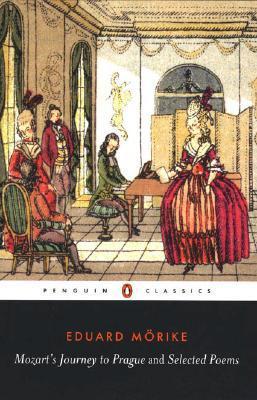What do you think?
Rate this book


256 pages, Paperback
First published January 1, 1971
Five stars on the strength of the title novella alone. The poetry selections are bilingual on facing pages, but for reasons that escape me, several are translated into Scots. That may be a linguistic midway between both languages, but it doesn't make "The Forsaken Lassie" any less ridiculous. Christopher Middleton has collected in his own bilingual edition some of Mörike's poems in a better, more fluid English translation.
The title novella, Mozart's Journey to Prague, isn't exactly dramatic (as other reviewers here bemoan), but who would reasonably expect that from Mörike? Though an early admirer of Hölderlin, he works outside of Hölderlin's proportions, rejecting the mythic and large-scale for the incidental and infinitesimal. Christopher Middleton calls him a "master of condensation... deepest when he senses the universe as an organism living by measure, as a matter of proportion, modulating itself in the subtlest perceptions and the tiniest forms." There is little in Mörike's novella that I would say is powerful, at least as Hölderlin can be ("Patmos"), though I would repeat Middleton's characterization: it is a beautifully measured work. Of course the one exception, a truly powerful moment, is Mörike's statement on the experience of art, which I repeat below.
Man simultaneously longs and fears to be driven out of his usual self, he feels that he will be touched by the infinite, by something that will seize his heart, contracting it even as it expands it, as it violently embraces his spirit. Add to this the awe inspired by consummate art, the thought that we are being permitted and enabled to enjoy a divine miracle, to assimilate it as something akin to ourselves—and such a thought brings with it a special emotion, indeed a kind of pride, which is perhaps the purest and most joyful feeling of which we are capable.